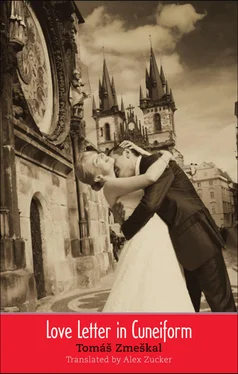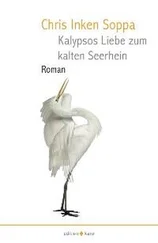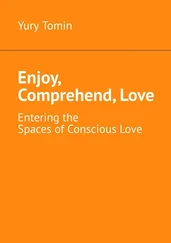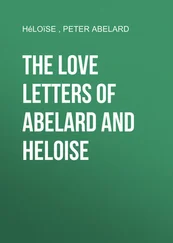Alice knew something was wrong. She wasn’t alarmed that her father wasn’t home, but the fact that her mother was sitting in his chair with swollen eyes augured something unpleasant. As far as Alice could remember, her mother had sat in her father’s chair only on a few occasions, and it was always when she was angry at him. Now, though, it looked like she was afraid. “Just leave me here. I’m all right. I just need to sit here and wait for your dad.” That was what she said when Alice went to look in on her. Smells like trouble, Alice thought, but she couldn’t pay any more attention to her mother, since she was supposed to meet Max at the train station in half an hour, and as it was she wasn’t sure if she would be on time. She gave her mother a kiss on the cheek. Her eyes were puffy, and she was trying to act as if nothing was wrong. Just in case, Alice did a quick scan of the room, but she didn’t notice anything unusual. She put on her new heels and dashed off to meet Maximilian, pausing in the entryway to call out to her mother that she might stay the night with him, adding that he’d never seen these shoes before and she was curious if he’d even notice, since she was sure he’d seen more interesting shoes in Germany. And she was gone.
Josef came home that evening. The only light on in the apartment was the lamp on his desk. He walked in and saw Květa, sitting at his desk, moving the scale back and forth on one of his slide rules. She sat huddled in the chair, obviously afraid. He saw her fear and remembered he had left the letter on the desk.
“Květa? Květa, honey?” he said, looking her in the face.
“You were never supposed to find out, even though I did do it for your sake, too,” Květa said. Despite having spent the past few hours composing and decomposing sentences in her head to arrive at what she was going to say, she knew it sounded unseemly.
“I’ll be at the cottage, Květa. Tell Alice I’ll be there, would you?” said Josef. He picked up the briefcase he took with him to work every day, and left. That night Květa couldn’t sleep. At least it meant a temporary reprieve from the nightmares, though she could hear their wings flapping above her head, and in her waking moments she had visions of long forest clearings, separated from one another by pain and regret.
On hearing the key in the door and the rhythm of her daughter’s ankles, she breathed a sigh of relief, faintly recalling the bizarre, unsettling dream she had had and feeling grateful to be awake. She dreamed that her husband had left her, that he had left her forever, and the pain she felt in the dream tore her in two. She woke feeling empty, then sighed with relief, looking forward to sharing the unusual dream with her husband. The feeling of relief didn’t last long. Even before the sweat could bead on her brow, she realized it hadn’t been a nightmare. When Alice came in with rolls, milk, and the morning paper, along with her father’s keys, which she had found in the mailbox, and asked why they were in there, the walls of anxiety came crashing down and Květa began screaming, crying, and wailing. What she had viewed as a dream just a moment before was sheer reality. Alice tried to give her a hug, tried at least to keep her from falling out of the chair and hurting herself on the sharp edges of the furniture. But the force of Květa’s grief was devastating, ravaging her heart and mind without letup. The moment her mother’s cries quieted down, Alice brought her into the bedroom and gave Maximilian a call to let him know what was happening and ask him to come over. Alice couldn’t stop hugging him once he finally got there, but neither of them knew what to do in a situation like that. At one point Květa pulled herself back together long enough to stagger over to the bedroom door and announce, “Your father left me. He left me, but don’t you ever hold it against him. It’s me he left, not you, sweetie.” Then she went back into the bedroom and went on sobbing.
From then on, Josef lived at the cottage in Lhotka. When anyone asked, he told them he had decided to remodel it into a proper country house where he could spend his retirement, and he actually did start on some of the alterations. If they asked how Květa felt about it, he just didn’t answer. He moved his things out of the apartment in Prague, making sure to choose a time when he wouldn’t run into his wife, and eventually friends and people they knew stopped asking questions and got used to the fact that they lived apart. The fact that he had to spend two hours a day taking the train to work and back during the week was his problem, no one else’s. At least that’s what he told Alice when she asked him about it. After a while, even she got used to it.
11. SECOND VISION OF IMMORTALITY
Without anyone saying, uttering, or mentioning it, word spread, around the square and then around the city, that the device needed repairing. Only when this verdict reached us, wrapped in a veil of obscurity and uncertainty, did most people realize, to their painful embarrassment, that no one actually knew what purpose the device served. Even I was not entirely certain, despite that my great-grandfather made repairs to the device during the last remodeling of the city hall and its main tower. The situation reached the point where the city council, forced by no one knew exactly what — probably some vague sense of responsibility — decided to appropriate funds to repair the device. The news reached me from several sources until finally it came about that I was, shall we say, indirectly and reluctantly invited to assist in the repairs. The problem was that although we managed to dig up some of the old drawings and plans, along with a notebook containing all the mathematical calculations, deliberations on use of materials, and records of payments in a currency that no longer exists, even after a thorough study of all these documents and drawings it wasn’t entirely clear to us what purpose the device in the tower had in fact originally served. The city officials and city council came up with the idea of holding a public competition. Casting a net, they called it, in the hope that it would turn up somebody who remembered what the device had been for. Yet at the same time they remained handcuffed by an undifferentiated mixture of humility, fear, and shame at our own ignorance. The device had been the pride of our ancestors, that much we knew. Generations ago, people traveled from all across the continent to look at it. Bunches of tourists clustered in front of city hall with their oldfangled optical imaging apparatuses, capturing visual likenesses of the exterior of the device. In those days it wasn’t yet possible to capture sound and image simultaneously, and even on the few occasions when they succeeded, everything came out flat. There was no common way to produce a natural three-dimensional reproduction. Then people sat down and observed the image on a flat screen from a distance, with no way to step into it and take part in the action unfolding before them. Amazingly, they didn’t seem to find it boring. Vilém, a historian I came to know while working on the reconstruction of the device, explained that people in those days would look at the flat images in special books. Apparently, friends would get together, look through the books, and narrate them as they went along. Usually the pictures showed their family or friends and the places they had visited. A whole complicated etiquette developed around this custom, which today only a handful of specialists understand. After long and cautious deliberations it was finally decided that the device would be repaired, in spite of the fact that its purpose remained unclear. Master architect Matthias Heinz and I were selected as cochairmen of the Committee for the Restoration of the Device to oversee its reconstruction and, eventually, full restoration. We were appointed by the city council, and I can honestly say that I believe our appointment was well received by all our fellow citizens. We decided to begin by collecting all the documents related to the device in a large room at city hall provided to us by the city council. From today’s standpoint, with the device in operation again for so many years, it would be easy to laugh at our beginnings, dismissing our efforts in hindsight with the cheap observation that while we were gathering together the documents, none of us on the committee, and I daresay, not one person in the city, thought to walk up a few floors, cross the connecting bridge, and enter the tower to see what the device actually looked like. Master Matthias had the idea to reexamine the story from more than two hundred years ago, which every little child in our city knows by heart. According to the story, a prominent composer was invited here to attend the premiere of a magical opera he had written for our beautiful city, and the splendid production met with a surprisingly enthusiastic reception. As a special honor, he was given a tour of the tower, including the device. Later, in his memoirs, the composer declared it to have been the most perfect, beautiful, and cruel thing he had ever seen in his life. As we now know, his Cantata for the Device of Justice and Progress became a kind of unofficial anthem of our city. The composer is of course Leopold XVI. Even in the accounts of his visit to the device, however, there is no clear explanation of what purpose it served. Either everyone at the time knew what it was for, or they were trying to cover up their ignorance.
Читать дальше












